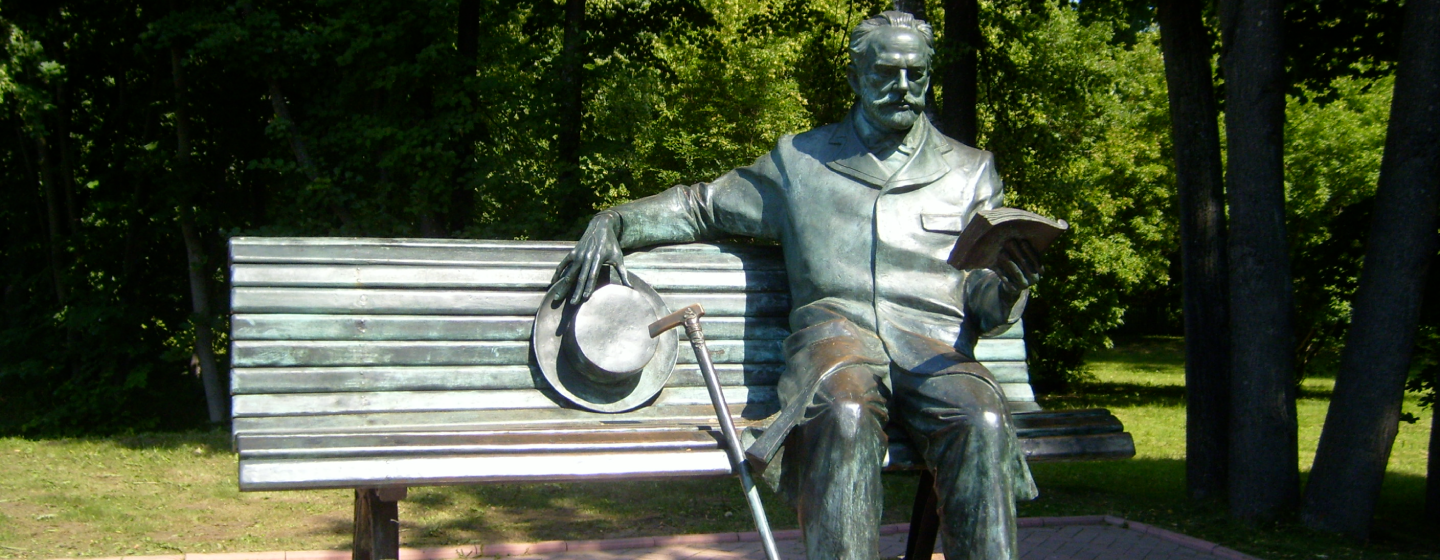Russian composer of the Romantic Era with wide-ranging output which included symphonies, operas, ballets, concertos, chamber music, and many songs. He wrote some of the most popular concert and theatrical music such as The Nutcracker, Swan Lake, The 1812 Overture and his First Piano Concerto.
Tchaikovsky was born into a middle-class family. Despite his early musical leanings, beginning with piano lessons at age 5, his parents didn’t think much of a career in music and so steered their son to a law career. Tchaikovsky’s musical career didn’t begin until much later in life. He attended law school in St. Petersburg and began a seven-year course of legal study.
It is thought that the trauma of his mother’s death in his early teens was what provided Tchaikovsky with the motivation more towards music. Within a month of her death, he began his first serious attempts at composing while still attending law school where his father hoped he would give up music. However, Tchaikovsky in his off time began to attend as much musical theatre and opera as he could, being inspired by the works of Rossini, Verdi & Mozart.
It wasn’t until his twenties that he began to study at the St. Petersburg Conservatory, abandoning his civil service career and graduating three years later. Tchaikovsky composed his first symphony during this period which was well received by both audiences and critics.
In his mid-twenties to mid-thirties, Tchaikovsky also became a music critic in addition to his composing. This was a very productive period which produced his First Piano Concerto, the Rococo Variations, and Swan Lake.
Tchaikovsky made a move to Moscow which was very successful professionally; his works were performed frequently and he began to develop a more wide recognition. It was during this period that he also composed his only violin concerto. It was a tour de force originally written especially for prominent violinist Leopold Auer. Auer got an early look at the score and refused to play it saying it was too difficult. Instead, the premiere was given by another violinist named Adolph Brodsky.
The intensity and passion of Tchaikovsky’s works were something quite new to early audiences. As a result, much of his music was not well received at first.
Always an introvert, in his forties, Tchaikovsky began to shed some of his shyness. He won a personal audience with the Tzar and was decorated. Although he continued a long disdain for public life, it was hard to avoid it with his growing celebrity, so he took a grin-and-bear-it attitude toward it.
Tchaikovsky died young by today’s standards at age 53, although by the life expectancy of the day, it was about average. The cause of death has been accepted as cholera from drinking tainted water, although other theories have surfaced over the years, even including possible suicide
More reading:
http://en.wikipedia.org/wiki/Pyotr_Ilyich_Tchaikovsky



